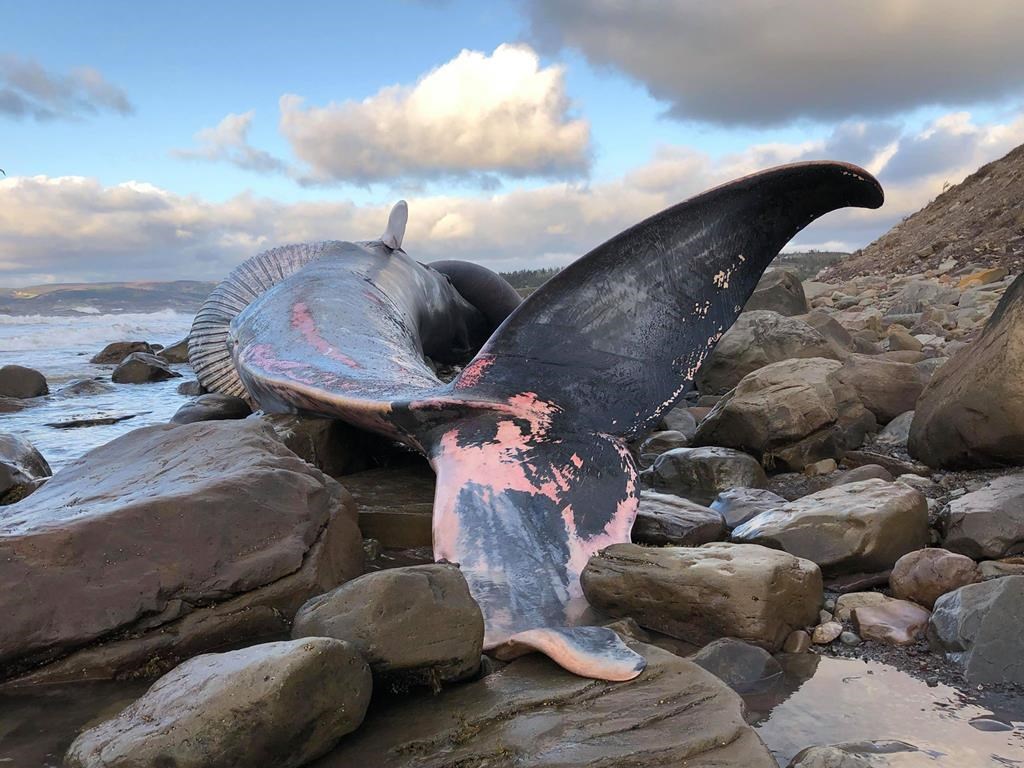The federal Fisheries Department says it won’t order a necropsy into the death of a young blue whale off Cape Breton.

The body of the endangered mammal was spotted last week at Sutherland’s Cove, about six kilometres north of Port Hawkesbury, N.S., and was confirmed by the Marine Animal Response Society to be a juvenile.
READ MORE: Carcass of young, endangered blue whale found on Cape Breton beach

Get breaking National news
Richard Sears, a scientist with the Mingan Island Cetacean Study based in St-Lambert, Quebec, said in an interview Tuesday it’s important to know how the animal died.
However, Fisheries and Oceans Canada says in a release today the whale is in a very inaccessible location and can’t be reached by vehicle.
READ MORE: Slow response to right whale plight could have impact on Canadian fisheries
A department spokesman says in an email that the decomposed state of the carcass also contributed to the decision not to study its cause of death.
Blue whales are the largest creatures on Earth, and have a potential lifespan of 70 to 80 years. There has been a federal recovery plan for the animals off Canada’s East Coast for over 17 years, and federal scientists estimate there are no more than 250 in the population.







Comments